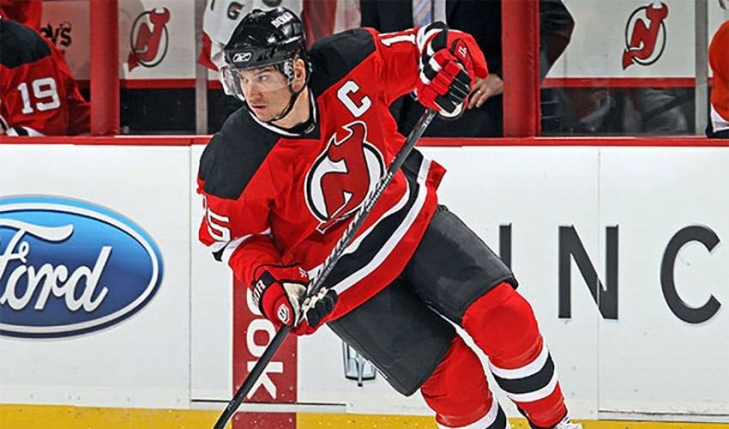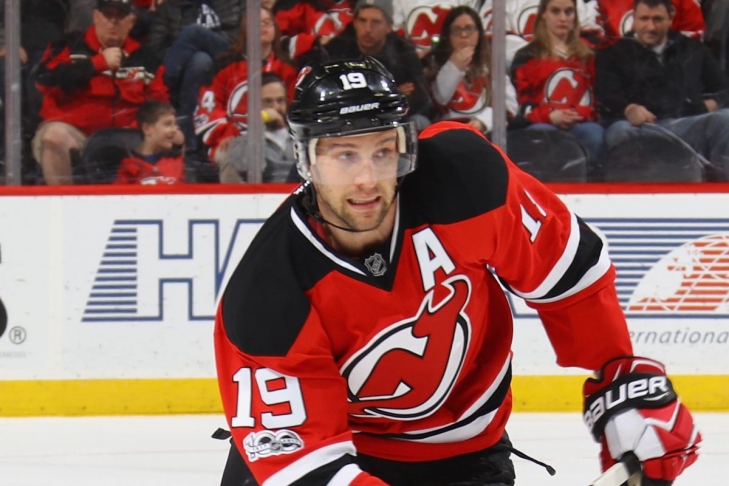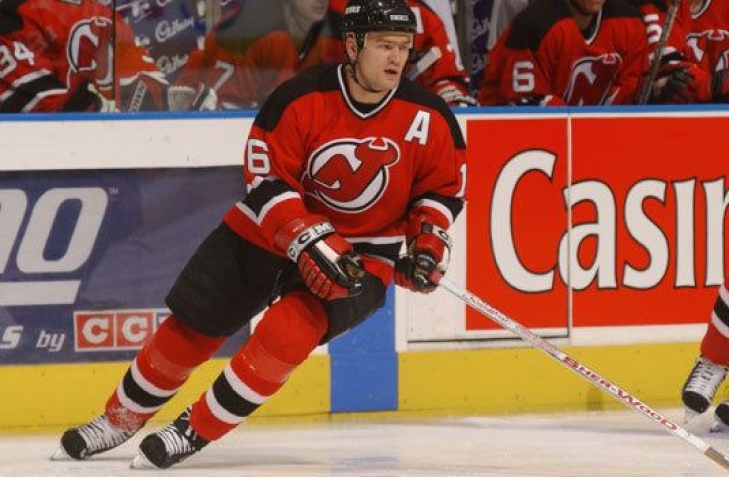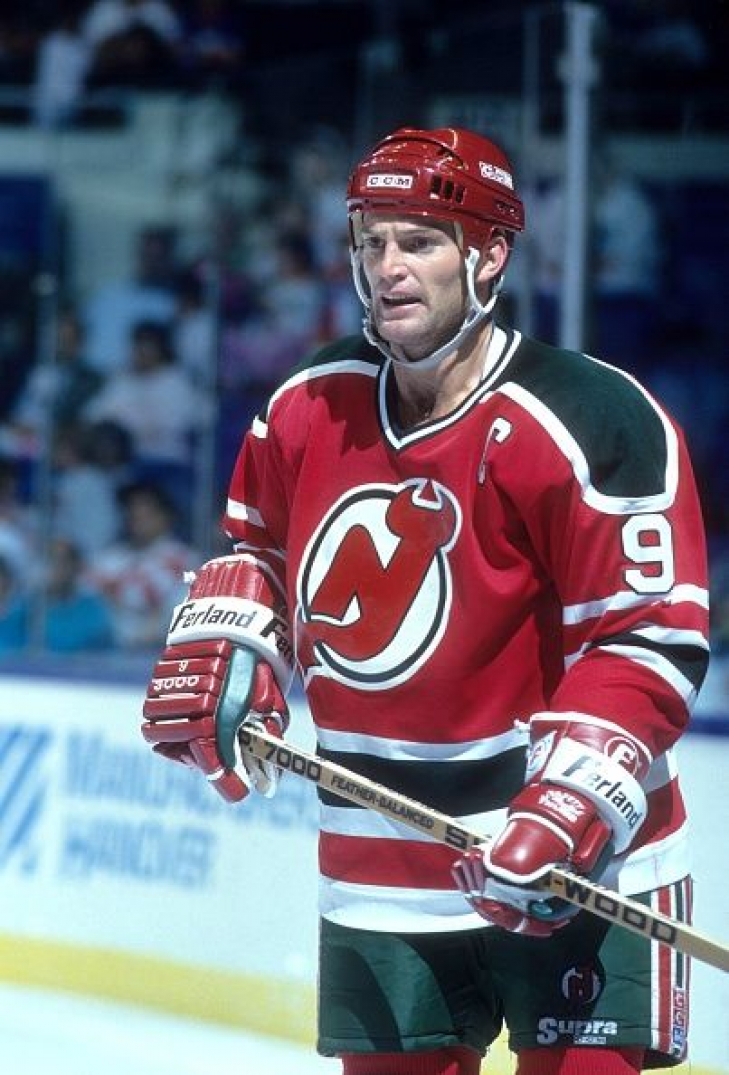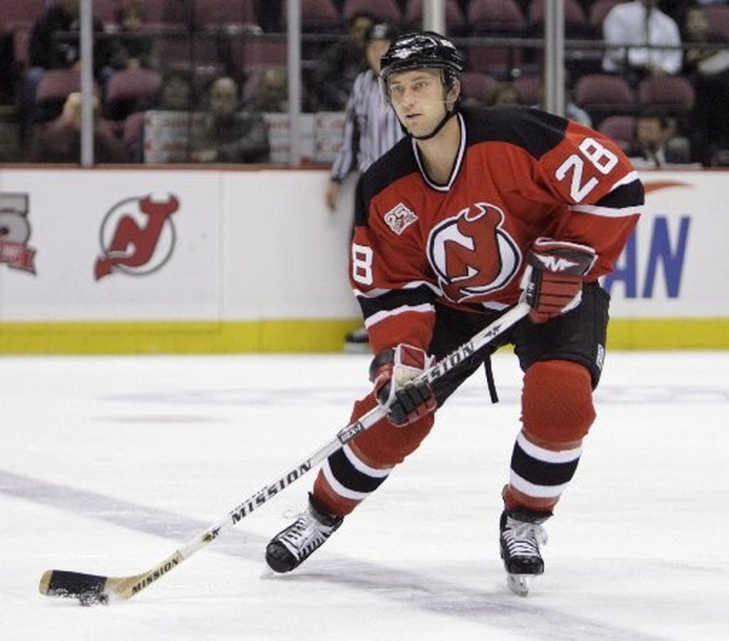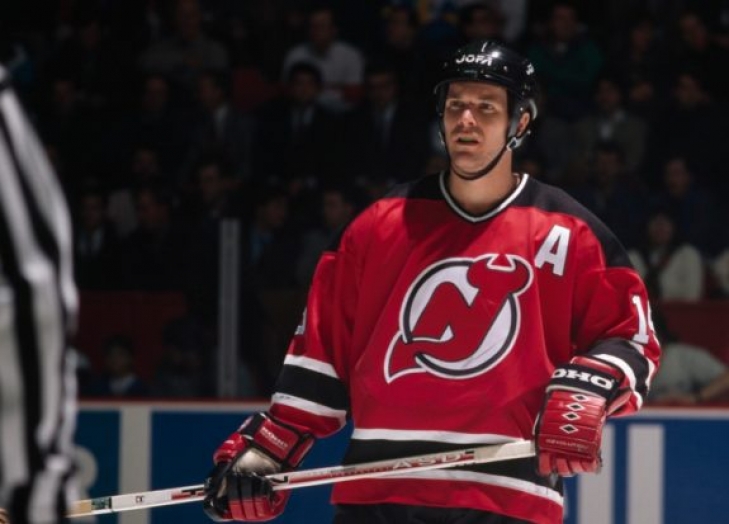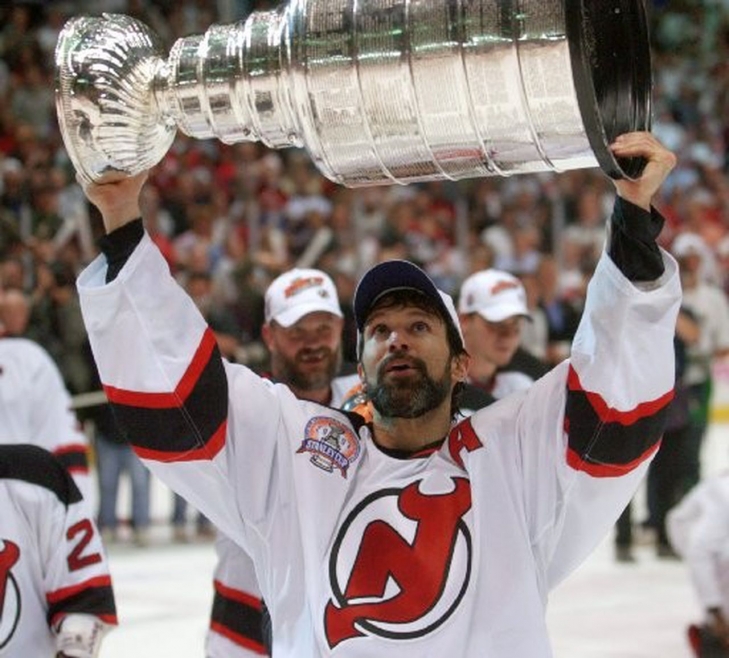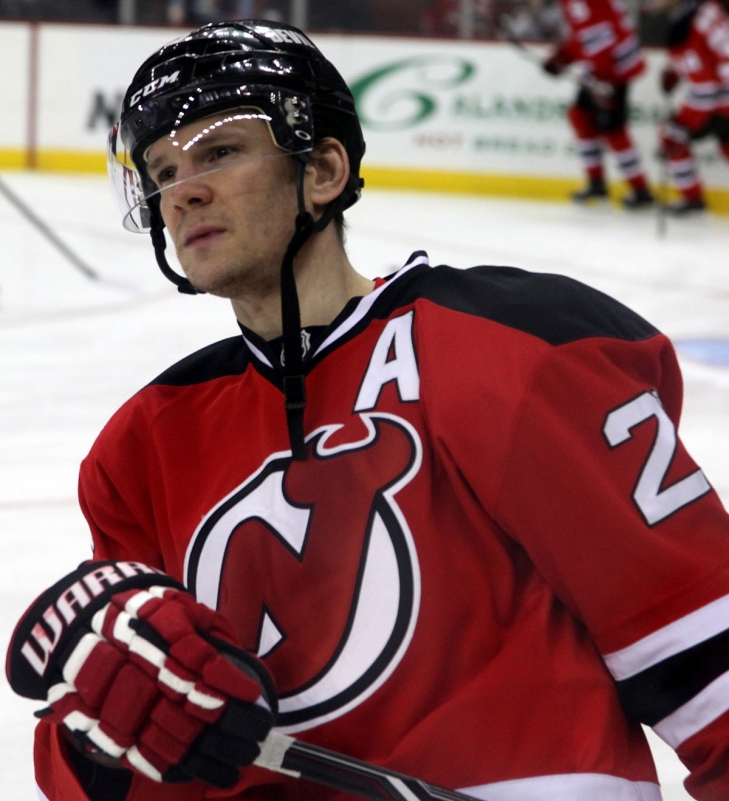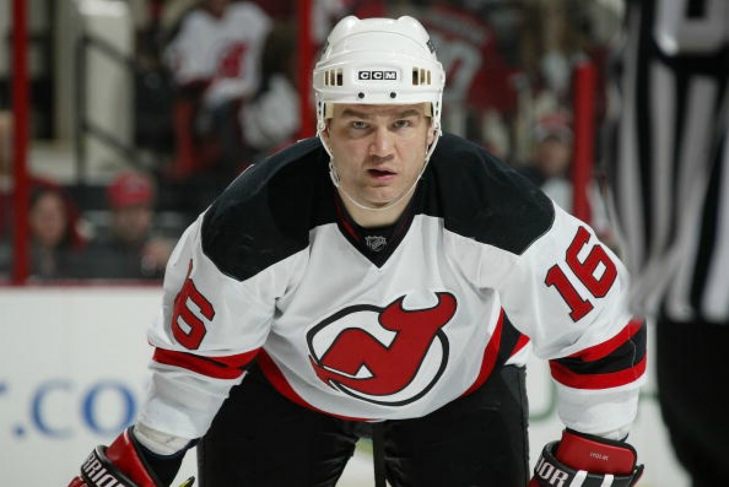15. Wilf Paiement
We finally have an entry where we get to look at a player before the franchise relocated to New Jersey. Actually, we have a player before they got to Colorado. Let’s do one better. The player in question, Wil Paiement, was the first man drafted by the team.
14. Jamie Langenbrunner
In his eighth season in the National Hockey League, Right Wing Jamie Langenbrunner was traded from his first team, the Dallas Stars, to the New Jersey Devils. The Minnesotan won a Stanley Cup with Dallas in 1999, and the on-ice leader was set to the same with the Devils.
12. Andy Greene
From Trenton, Michigan, Andy Greene was never drafted by a National Hockey League team, and he needed to prove himself with the Miami Redhawks in the MAC. Greene performed well enough for the New Jersey Devils to sign him in 2006.
13. Travis Zajac
Travis Zajac was taken in the First Round in the 2006 Draft (20thOverall), and the native of Winnipeg cracked the New Jersey Devils roster immediately, with a 42 Point Season and a tenth-place finish in Calder voting.
11. Bobby Holik
Bobby Holik played for the Hartford Whalers for the first two seasons of his NHL career, but a trade to the New Jersey Devils in the Summer of 1992 would place him on the team where he would have the most productive period of his life.
10. Bruce Driver
Bruce Driver was a Sixth Round Pick by New Jersey when the team was still located in Colorado.
9. Kirk Muller
The New Jersey Devils had the number two choice in the 1984 Draft, and since they were not going to get Mario Lemieux (who went number one) they went with Kirk Muller, who was a damned good player in his own right.
7. Brian Rafalski
Another member of multiple New Jersey Devils Stanley Cup championships, Brian Rafalski, was either a late bloomer or incredibly overlooked.
8. Zach Parise
Zach Parise was taken with the 17thOverall Pick in 2003, and the American Left Wing would debut for the New Jersey Devils two years later.
5. Ken Daneyko
This is one where you don't go by the number of times a hockey player showed up on a stat sheet.
6. John MacLean
John MacLean was taken Sixth Overall in the 1983 Draft, and the Right Wing played 23 Games that year for the Devils that season.
3. Scott Niedermayer
We just spoke of the importance of Scott Stevens to the Devils defense and overall success of the team. Consider Scott Niedermayer at a similar level in both.
Niedermayer was drafted Third Overall in 1991, the same season where Stevens was allocated to New Jersey as compensation for the signing of Brendan Shanahan. Niedermayer played four Games in the year he was drafted but was a full-time member of the roster the year following, and he was quickly regarded as one of the best two-way blueliners in the game.
After helping New Jersey win the Stanley Cup in 1995, he would have his first top-ten Norris season in 1997-98, where he scored 57 Points, his highest as a Devil, and securing a Second Team All-Star Selection. Niedermayer won another Cup with the Devils in 2000, and in 2003, he anchored the Devils in another title, where he led all skaters in the post-season in Assists (16) and Points (18).
Niedermayer would not win another Cup with New Jersey, but in his final year with the Devils (2003-04), he won the Norris Trophy and was ninth in Hart Trophy voting. He was also named a First Team All-Star, the first and only time he did so as a Devil. Niedermayer left New Jersey afterward for Anaheim, where he joined his brother, Rob.
After joining Anaheim, Niedermayer won his fourth Stanley Cup in 2007. The Devils retired his number 27 in 2011, and the Hockey Hall of Fame inducted him in 2013, his first year of eligibility. With the Devils, Niedermayer scored 476 Points with a healthy Plus/Minus of +172.
4. Patrik Elias
Patrik Elias played 20 years in the National Hockey League, all of which were in a New Jersey Devils uniform.
2. Scott Stevens
While Martin Brodeur was ranked at #1, we can argue that the Devils run as a Stanley Cup contender truly began with the signing of Scott Stevens.
1. Martin Brodeur
We love it when the decision is this easy.
245. Bobby Holik
78. Stephane Richer
A solid goal scorer during his sting with Montreal, Stephane Richer gave Montreal fans a blast from the past and hope for a future with a French Canadian offensive star playing for Les Habitants. Richer was the first Montreal player since Guy LaFleur to score 50 goals a season. Richer accomplished that feat twice and was known throughout the NHL for his blistering shot. Once Richer’s skills eroded, he lacked the intangibles to remain an effective player late in his career and he bounced around the league. Still, Richer finished with 421 goals and had two Stanley Cup rings and was able to have an effective career.
53. Pat Verbeek
Although many people have laced up the skates for the New Jersey Devils, there were many who thought that Pat Verbeek may very well be one. Verbeek was a tough player who logged over 2,500 in penalty minutes and was as pesky a player as they came. Verbeek could put the puck in the net and scored 522 goals in his career. There are a few players on this list who cracked the 1,000 point mark, but pound for pound there were few on the level of Pat Verbeek.
43. Patrik Elias
Martin Brodeur
There should be no doubt about this, nor will there be any relevant debate on this subject.



